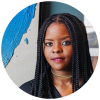Is Africa joining the TikTok ban party?

The short: African regulators are side-eyeing the TikTok ban party.
The West doesn’t rate TikTok: TikTok is home to 1.534 billion users, with 1 billion unique monthly active users – it is the fifth largest social media app in the world and a pain-in-the-behind competitor to Instagram and Snap. But unlike its peers, its ties to China have been a big concern for Western countries.
A staggering fourteen countries, including the United States, the United Kingdom and the EU, have imposed some restrictions on TikTok, ranging from barring government workers from using the app on government-issued devices to contemplating outright bans or forcing a sale.
But…. in Africa: The continent is fuelling TikTok’s rapid growth without the regulation to back it. The app cornered a 32% market share from Instagram and Facebook in Nigeria and is closely edging out Instagram with 10 million users in South Africa.
Despite users in Africa calling out TikTok over allegations of bias, censure and misinformation, African regulators have silently stood in the corner, observing the West dictate TiktTok’s future.
Act like we’re not here: While African regulators have chosen to be the shy guest in the party who observes everyone else throw it down on the dance floor, TikTok’s data practices might be breaching regional laws.
For example, Nigeria’s Cybercrimes (Prohibition, Prevention etc.) Act criminalises any activity that undermines the security or sovereignty of Nigeria in cyberspace.
South Africa’s Protection of Personal Information Act (POPIA) protects its citizens’ data from being used unethically – and as all the facts indicate, TikTok has crossed several data privacy lines.
Other African countries, including Ghana, Kenya, Madagascar, Mauritius, Rwanda, Togo, Uganda, and Zimbabwe, are implementing new security and protection measures for citizens’ personal information. Still, the damage is spreading faster than these measures.
Africa doesn’t have the power: Unlike Western countries that can quickly cut off China’s superstar app, the dynamics are different in Africa. China owns a whopping 12% of Africa’s $696 billion foreign debt, and the country has come under scrutiny for intentionally giving loans they know will be challenging to repay.
The economic implications are on par with the debt. Africa’s budding creator economy will suffer a significant setback if the app is banned – with creators losing years of progress and livelihood if the Chinese unicorn is banned.
Final thoughts: Debt aside, Africa has less beef with China than some countries riding the ban wagon. Some experts still argue that TikTok’s data practices are similar to the social media apps topping it on the popularity list.
For now, Africa has other pressing issues to contemplate. Take your pick.
Verto is picking up where SVB left off

The short: Verto swoops in to poach ex-Silicon Valley Bank clients in Africa.
We’ll take that, thank you: Founded in 2018 by co-founders Ola Oyetayo and Anthony Oduwole, Verto, a London-based startup that helps startups and small businesses send and receive money across borders, has snatched up a juicy slice of Silicon Valley Bank’s (SVB) customers from Africa and the MENA region.
SVB’s demise left about 250 clients in both regions in the lurch, and Verto swooped in and scooped up more than 60 of them, including big names like Chipper Cash, Jumia, and TapTap Send.
Money is king: After successfully securing $10 million in Series A funding to execute its expansion plan in 2021, Verto’s transaction volumes rose by 70% to over $3 billion last year.
A perfectly timed product: Verto isn’t shy about seizing its moment. Following the SVB disaster, companies now prioritise utilising accounts that are not subject to the fate of the institution that houses them. To build trust, Verto launched safeguarded USD accounts last month to appeal to the new market.
According to Verto, the funds in safeguarded accounts are domiciled with reputable banks in the U.K. Neither Verto nor the bank can touch the money in these accounts, so they are fully protected if Verto goes belly up. The only downside to these accounts is they do not earn interest over time.
Final thoughts: Where opportunity meets a perfectly timed product – this sums up Verto’s claim to success. If there’s one thing it’s solving for right now, it’s making it easier for startups to worry less about banking and more about staying laser-focused on their mission.
Africa is climbing the e-gaming charts

The short: Africa is a strong contender as a global gaming titan.
We’re coming up: Africa’s gaming industry is scaling up. Sub-Saharan Africa and Libya’s gaming population more than doubled in the last five years, and it’s not slowing down.
Projected to be the fastest-growing gaming market in the world, Africa still has some catching up to do with Asia – the king of gaming. With half the world’s ~3.09 billion gamers residing in Asia, Sub-Saharan Africa takes only 10% of that pie.
South Africa takes the biggest bite, leading the continent in gaming revenues, followed by Nigeria, Ghana and Kenya.
Regional players: Several regional startups are driving rapid adoption and positioning themselves for the industry’s spoils.
Meet the startups making waves in the African gaming scene:
- Carry1st: Mobile gaming company from South Africa that raised $27 million to create new games and help other developers monetise their games with its Pay1st platform.
- Gamr Africa: Building infrastructure for Africa’s gaming ecosystem.
- ChopUp: Nigerian game studio that makes games inspired by African culture, stories and social issues.
- Usiku Games: Kenyan game studio that makes games for social good. The games tackle social challenges and promote positive change in Africa through fun, educational and empowering games for African gamers.
- Leti Arts: Ghanaian startup with flagship product “The True Ananse”, a comic book and game series that reimagines the legendary West African trickster god Ananse as a superhero in modern times.
Final thoughts: Africa has a bank full of untapped cultural stories and a vibrant young population. The potential of the gaming industry for both our studios and competitive gamers is massive.
What a win to see another industry on the continent – apart from fintech, be projected to be the fastest-growing industry in the world!
Thanks for reading! We’d love to hear your thoughts about this week’s issue.
Please respond directly to this email or find me on Twitter @fatuogwuche 🙂
See you next Sunday!

